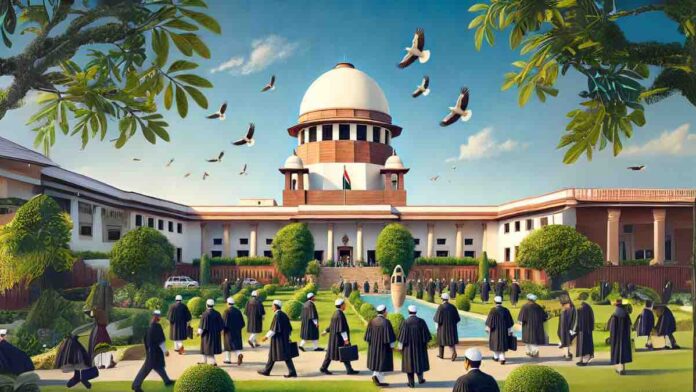In a significant ruling that underscores the need for judicial accountability, the Supreme Court of India has set aside an ante-dated order by the Gujarat High Court, while emphasizing the imperative for High Court judges to be paragons of rectitude, integrity, and professionalism. The case, Ratilal Jhaverbhai Parmar & Ors. v. State of Gujarat &
To Read More Please Subscribe to VIP Membership for Unlimited Access to All the Articles, Download Available Copies of Judgments/Order, Acess to Central/State Bare Acts, Advertisement Free Content, Access to More than 4000 Legal Drafts( Readymade Editable Formats of Suits, Petitions, Writs, Legal Notices, Divorce Petitions, 138 Notices, Bail Applications etc.) in Hindi and English.




